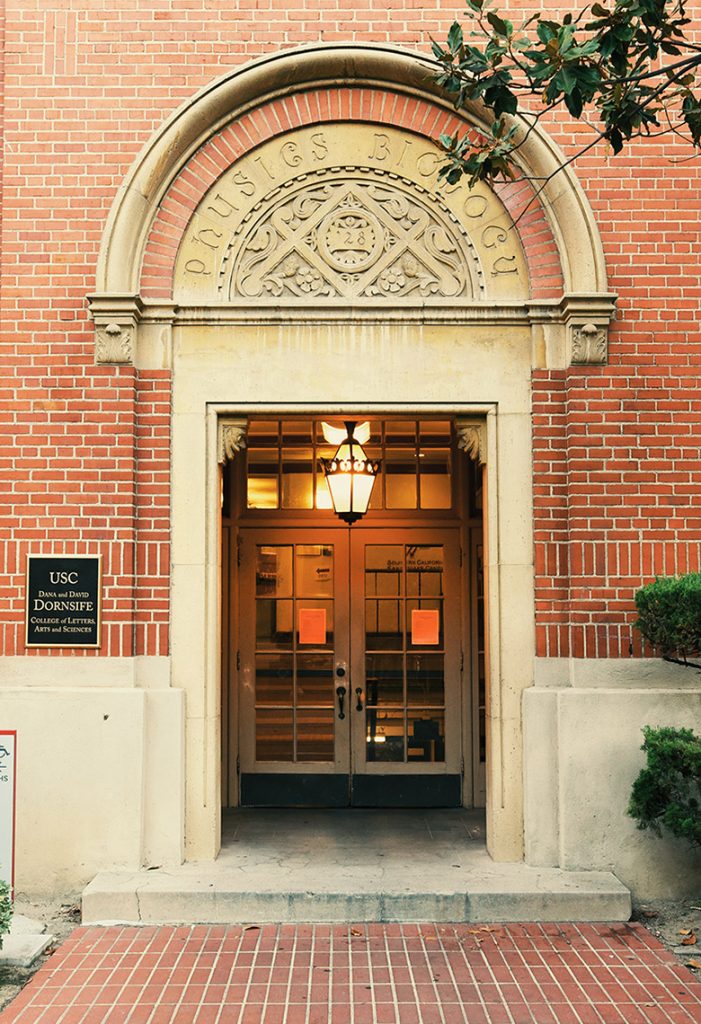Classes
Professor Nguyen teaches undergraduate and graduate courses on topics including Asian American literature, the Vietnam War and memory, American literatures from the 18th to the 21st century, and ethnic and American studies. Some of his course descriptions and syllabi follow.
In Spring 2023, he is teaching a graduate course on “Writing As An Other”. He is also teaching an undergraduate general education course on the Vietnam War and memory, through American Studies and Ethnicity. It features a multimedia component where students will interview war survivors and contribute to anotherwarmemorial.com
Are you a student and not sure about the proper way of communicating with him or other professors? See this useful etiquette guide.



Graduate Courses
Writing As An Other
What does it mean to be an other? How does the other experience their own self and subjectivity? What does it mean to write as an other? These are the core questions for this course, which foregrounds in particular the way that writers who are marked as other or who imagine themselves as other have dealt with issues of aesthetics, politics, economics, history, representation, publishing, and criticism. The writers who interest me are the ones who resist boundaries of all kinds—national, racial, gendered, generic, sexual, and disciplinary. Boundaries are a way of creating others and managing otherness by restricting creative, critical, and political inquiry. The writers we will read—novelists, poets, essayists, memoirists, critics, theorists—challenge multiple boundaries.
Writing As An Other – Spring 2023 syllabus
Critical Refugee Studies
Critical refugee studies” is a relatively new field, even if refugee studies is not. In this seminar, we look at some of the history and politics behind the refugee “crisis” of the contemporary era and focus on two strains of thinking that emerge from it: first, the efforts by scholars doing critical refugee studies to treat refugee movements, histories, and populations as indexes for systemic global crises of war, capitalism, colonialism, and climate change; and second, the efforts of refugees and their descendants to represent themselves through literature, art, film, and music, using the power of cultural production to assert refugee subjectivities and contest the objectifying, often dehumanizing frameworks of refugee aid, scholarship, and legislation. Ultimately, the seminar’s goal is to think through a “refugee methodology” that leads towards a critique of state power and a liberatory aesthetic
Critical Refugee Studies – Spring 2022 syllabus
Transpacific Studies, Indigeneity, and Decolonization
This is a course on the intersection of the transpacific, indigeneity, and decolonization. It begins from the premise that colonization has shaped much of the world in the last five hundred years, with wide-ranging ramifications that many people often disconnect from the history of colonization. Decolonization is the political process that must be named and used to address these consequences of colonization, or the fact that from the perspectives of many indigenous peoples in the United States and elsewhere, colonization still continues, including in the U.S. -controlled Pacific and within the United States.
Transpacific Studies, Indigeneity, and Decolonization – Spring 2021 syllabus
From Representation to Decolonization
Representation has been a crucial aesthetic, cultural, and political concept for minorities of all kinds in the United States and elsewhere. In literary and other artistic contexts, representation has been a key demand for marginalized populations who wish to see more stories about themselves, as well as more images, reflections, etc. “Representation matters!” has become a rallying cry, and the political stakes are high, given how the opposition to such a demand is sometimes couched as a defense of the Western canon, culture, and even civilization against the inclusion of artistically unworthy works (and the culturally unworthy populations these works represent). A “representative” aesthetic that has been called “multicultural,” “ethnic,” “minority,” “diverse,” and more makes significant political claims about equality and justice. But is representation and its corollary—recognition—enough? Would “decolonization” be a more effective term that draws attention to how the problems of representation for minorities of all kinds cannot be separated from the history of colonization? What would a decolonizing aesthetic that includes an engagement with the material history of colonization (warfare, land appropriation, sexual violence, labor exploitation, geographical marginalization, and the symbolic violence of erasure) look like?
From Representation to Decolonization – Spring 2020 syllabus
War and Memory
This course surveys theories of memory and problems in the relation of memory to war. On memory in general, the course traces the arc of memory studies, which gained momentum after the 1960s and has culminated in what some critics call a “memory boom” and a “memory industry.” We begin with Chris Marker’s premise, that “the function of remembering is not the opposite of forgetting, but rather its lining,” and consider the ethical, political, and aesthetic challenges for remembering and forgetting, both of which are necessary to confront war and its related traumas. Along the way, we will read some of the most important and influential books and essays in memory studies…
War and Memory – Spring 2013 syllabus
War and Memory – Fall 2010 syllabus
Readings in Asian American Studies
This course is a multidisciplinary overview of Asian American studies and what I will call its three phases of intellectual formation: essentialism, strategic essentialism, and post-essentialism. In the past forty years of Asian American studies, it’s arguable that essentialism—the belief that there is such a thing as an Asian American—dominated and defined the field for two decades. Essentialism is hardly over, but still continues as a powerful force in the field of Asian American studies, in community politics, in new ethnic formations, in organizing, and so on. Strategic essentialism has dominated the academic field since the early 1990s, and arguably still does today, the principle that even if there is no such thing as an Asian American, the concept is crucial and useful as a mode of analysis and activism. In the last decade, post-essentialism has emerged through various attempts to criticize the necessity and utility of Asian American identity and formation. These attempts include poststructuralist critiques of the field and efforts to expand it transnationally and cross-racially, as well as efforts to foreground issues of ideology and political practice over identity, foregrounding pressing issues like war, violence, religion, queerness, imperialism and indigeneity…
Readings in Asian American Studies – Fall 2010 syllabus
Readings in Asian American Studies – Fall 2005 syllabus
After Identity
Since the new social movements of the 1960s, “identity” has been a key locus for political organization, social mobilization, and cultural production. The “culture wars” around identity reached their peak in the late 1980s and early 1990s, with opponents of so-called “identity politics” arguing that such politics threatened to disunite America. Proponents, of course, saw the recognition of diverse identities through multiculturalism as being fundamental to American unity. Since this period, identity-based movements and politics have arguably moved from being emergent or dissident political phenomena to being part of the cultural dominant of the United States and of late capitalism. Not surprisingly, cultural and political theorists are questioning the multivalent and contradictory roles played by these movements and politics. In this course, we will read a wide range of such reconsiderations; we will also consider some texts, past and present, that argue for the necessity of identity. Some of the fields we will traverse include ethnic, American, queer, postcolonial, feminist and literary studies, keeping in mind as we do so that many of these disciplines and fields are also engaged in contesting the unacknowledged and unmarked identity formations of dominant cultures.
Undergraduate Courses
The American War in Vietnam
The Vietnam War is still invoked in debates over current American wars in Iraq and Afghanistan. This course provides an introduction to the war’s history in order for today’s Americans to understand some of the key factors leading the US into its current geopolitical situation…The course is a multidisciplinary, multicultural and international overview of the war’s history and its afterlife in American and Vietnamese memory…The course corrects a fundamental flaw in the American pedagogy and scholarship on Vietnam, which mostly sees the country, people, and war purely from the perspective of American self-interest and ethnocentrism. In contrast, this courses stresses the diversity of American experiences, the importance of Vietnamese points of view, and the existence of international actors in the war who were neither American nor Vietnamese.
Students interviewed survivors of the Vietnam War and shared those interviews on the course’s evolving archive of memories, An Other War Memorial.
The American War in Vietnam – Spring 2023 Syllabus
Asian American Literature
This course is a selective examination of the major works, authors, and themes of Asian American literature, from the mid-20th century until the contemporary moment. The primary concern of the course is to demonstrate the dynamic relationship between Asian American literature and the histories of Asians in the United States, and the United States in Asia. In particular, the shifting function of Asian immigrants and Asian Americans in U.S. culture and economy will be a focus for the course as we examine how Asian American literary concerns and styles have evolved with that shifting function. Ultimately, the proposition this course puts forth is that the aesthetics of Asian American literature is inseparable from the politics of Asian American experiences; this intersection between aesthetics and politics is one important site where Asian American culture and identity are formed.
Asian American Literature – Fall 2009 syllabus
Asian American Literature – Fall 2007 syllabus
The Nation and its Others in American Literature and Film
This course examines American national identity, especially as it is formed and changes during periods of intense conflict and stress. Conflict and stress existed at the origins of American society, in the nexus of cultural confrontations between English settlers, native Americans, and African slaves, as we will see with Benjamin Franklin’s Autobiography. Although these initial confrontations seem to be explicitly about race, we will also see the complex interplay between class, gender, sexuality and cultural self-imagination. This complex interplay has shaped the early foundation of American identity and exclusions from that identity. We will explore the legacy of this early identity as it has evolved into the 19th and 20th centuries, and we will examine how our contemporary notions of cultural difference concerning other issues besides race—feminism, homosexuality, foreigners (legal and undocumented), and the poor—find some of their origins in this legacy. We will also examine the United States at war, from World War II to Iraq…
Nation and its Others – Spring 2010 syllabus
The Literatures of America: Cross-Cultural Perspectives
We live in a multicultural nation that is becoming part of a global society. This course’s premise is that Americans need to wrestle with both their own diversity as well as the way that their actions affect other nations and help shape these nations’ perceptions of the United States. The contemporary novel is a vehicle that helps us understand these issues of difference and perception. In particular, this course is concerned with the novel’s development as a response to traumatic events in American history and changes in American society…